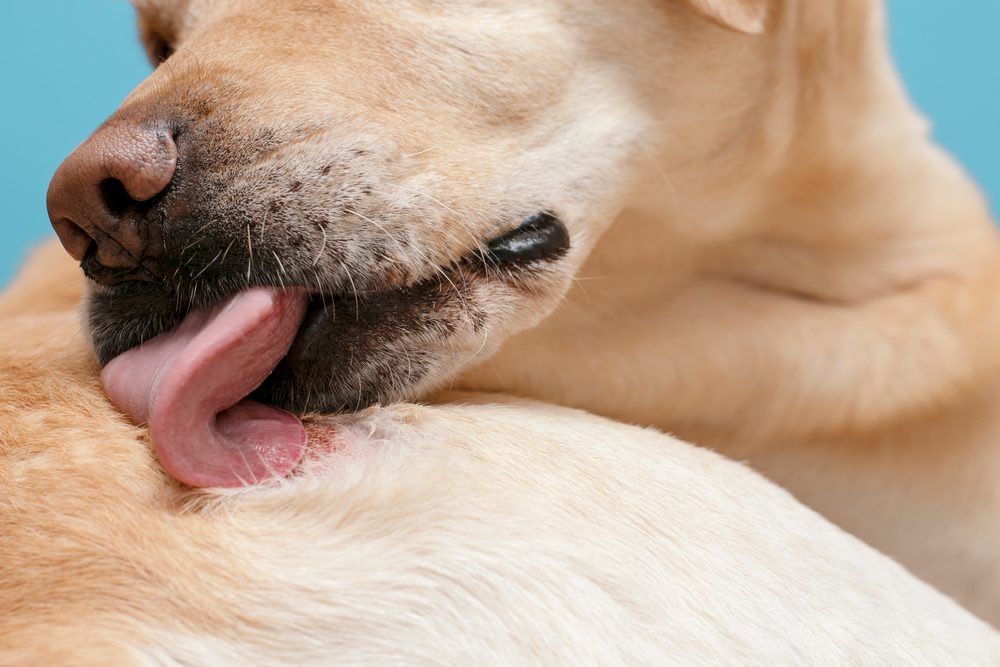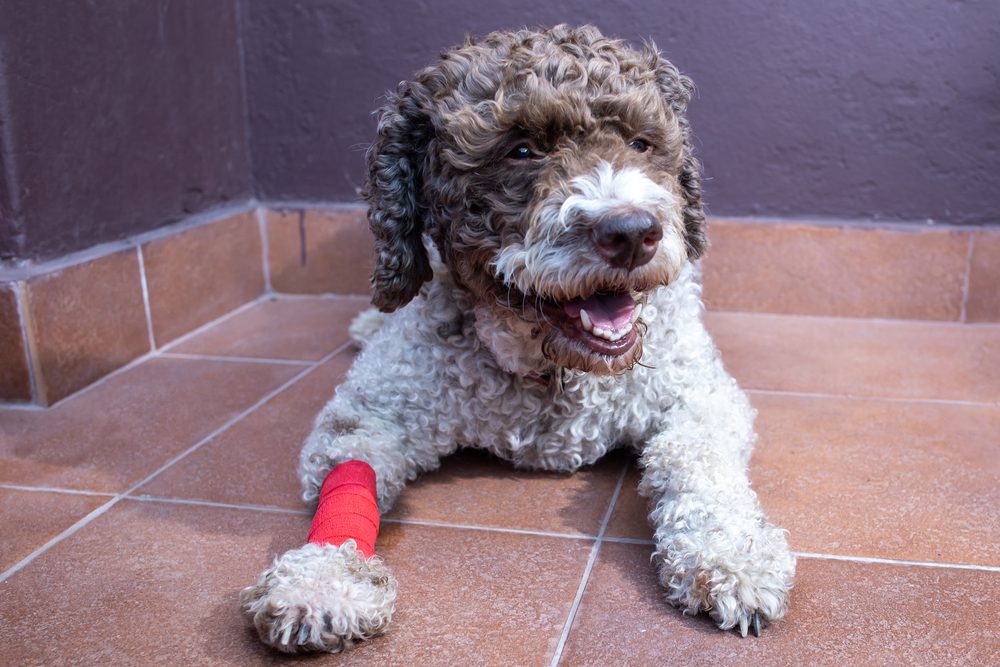There is nothing to do about this; dogs also get old. This is how things work, and when you have a pup that you care about and love, you should know a thing or two about the health problems of senior dogs.
Even more, not all dogs age the same. Just like us, this process depends on a lot of variables, such as breed and size. For example, the Great Dane, which is the biggest dog known to us, is considered a senior at only 6 years old! On the other hand, smaller pups are well known to live longer lives.
If you want your faithful companion to live a long and healthy life, you need to recognize the health problems of senior dogs. If you can identify the signs early, the chances of the treatment being effective are much higher. So, read on and learn all about them!

1. Various skin problems
Skin and coat issues are pretty common among dogs, and they can appear at any age, but they are more prevalent as they get older. Try to keep an eye on all the changes, and if you notice any lump, rash, swelling, lesion, or hair loss, try to contact a veterinarian as soon as possible.
As they grow older, many dogs get bumps under their skin. Fatty growths, or lipomas, are common and benign, which means your pet won’t be affected by them. But this fatty growth may look similar to other more dangerous growths, and this is why you should always take your pup to the vet.
Also, a doctor is the only one who can alleviate the symptoms associated with skin conditions. Maybe they can find a cure for the underlying cause, and they can also suggest some changes that can make things better. For example, dietary changes are known to help with skin problems.
Remember that any new lump is a cause for concern, especially if it grows and changes shape and color.
2. Health problems of senior dogs? Problems with memory and behavior
If we look at humans, these types of changes in seniors are not surprising at all. But are there also some of the health problems of senior dogs? Yes, they are, and there are some pups that can get dog dementia, also known as canine cognitive dysfunction.
If you notice that your senior dog shows signs of confusion, memory loss, disorientation, or any other personality changes, you need to contact the vet.
Some of the signs of dog dementia can be seen if your dog starts to get lost in familiar places, such as your yard, where they usually spend their time, inside the house, or in the neighborhood where you live.
Also, their interactions with you or other dogs might seem unusual. Maybe they are more irritable and aggressive, or they can also be more clingy and needy. This is different for each pup.
Other indications of canine cognitive dysfunction include pacing or being awake during the night, urinary accidents, and forgetting previously learned commands (such as sit and stay).
3. Eye problems
Is your dog showing signs of vision loss or other eye problems? Are they falling randomly or bumping into things? Do they have red or cloudy eyes? These are some of the health problems of senior dogs and should be addressed as soon as possible to not let them develop more and make the life of your canine companion harder.
It is natural for dogs who age to have deteriorated eyesight. This is a gradual process, and as they get older and older, their vision will also become less precise. Most dogs will develop some kind of cloudiness in their eye lenses, but this is natural.
But even if this is a normal process that happens to many dogs during this stage of their lives, you should still visit the veterinarian. There are many eye problems that can be treated, such as cataracts, dry eye syndrome, conjunctivitis, or corneal damage.
The vet is also the one who can tell you how to help your dog with vision problems. For example, try not to move furniture around because this can confuse them. Make the space as safe as possible, and try to take care of any sharp edges or other things that might hurt your visually impaired pup.
Most importantly, stay positive! Even if they can’t see anything, the shape sense of dogs will help them be functional. From now on, they will rely heavily on smell and hearing.
4. Oral problems
Most people don’t brush their dog’s teeth, and this can lead to some of the most common health problems in senior dogs: oral problems. Yes, if you know that you haven’t taken care of the oral hygiene of your four-legged companion, they might develop various problems with their teeth as they get older.
If you notice gum inflammation, bad breath, excessive drooling, and, in the worst-case scenario, loose teeth, these are clear signs that something is not right and it is time for a vet checkup.
Hopefully, if you see the signs early, most of these problems can be treated, or at least the vet can give you some medication that stops the condition from developing more and also reduces the symptoms.
Ask the vet about what you can do to give your pup proper oral hygiene. Ask them to teach you more about how to brush the teeth of the dog and about regular professional cleaning. It is never too late to start, and this can help you prevent other problems in the future.
5. Weight problems
Another health problem of senior dogs is their weight. More specifically about how they manage to maintain their weight. While some elderly dogs tend to gain weight and may require a diet for less active dogs, others have trouble maintaining their weight and may benefit from dog food with a larger calorie content or increased palatability.
Your dog should not be overweight, but being underweight is as bad as the first option. So, you should try to help them maintain a healthy weight. This is the idea we strive for. For example, diabetes, heart disease, arthritis, and even cancer are more common in overweight and obese dogs.
Again, you should talk to your vet and then decide together what the best diet is for your pup. The vet is the only one who can tell you if it is a good idea to switch from a normal diet to a senior dog diet. Also, don’t hesitate to ask about an exercise plan. This can slow down the aging process and keep your dog healthy for longer.

6. Bone and joint problems
Maybe your dog used to be extremely active, and they were always running around and ready to play at any time. It might be strange for you to look at your friends now and see how they can’t do the same things they used to do a few years ago.
The saddest part about this is that maybe your dog still wants to be active and play, but they are no longer able to do that. This might be due to joint pain caused by conditions such as arthritis. This is pretty common among older dogs.
If you think that adding antioxidants and omega-3 fatty acids to your diet will help, talk to your veterinarian about it. In order to accommodate your older dog’s decreased mobility, you may also get them an orthopedic bed and some dog ramps you can install in key spots around your home.
If your pup needs joint support, you can try this collar: ACTIVPHY Hip + Joint Mobility Collar for Dogs with Glucosamine, Chondroitin, MSM
You should also read: 7 Energetic Dog Breeds That Are Not Fit for Seniors











